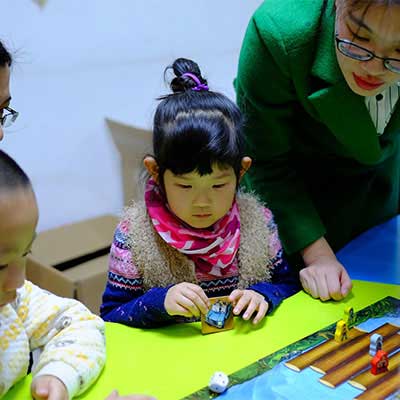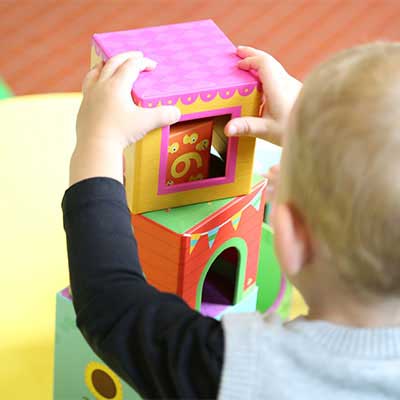The Books Contents
Chapter 1: Pre-natal Development-
The pre-natal development period extends to about 9 calendar months. During this pregnancy period the fertilized ovum undergoes many changes in the mother’s womb. It is important to know about the various factors influencing the growth and development of the foetus at all stages of its growth.
Chapter 2: Child Birth-
This is an exciting and most awaited moment for parents. Lot of expectations are attached to this event. Traditional or modern, all parents expectedly welcome the newly born in the word. Many formalities are required to be fulfilled to make the child a member of the society and community it is going to live in for the rest of its life.
Chapter 3: Infancy-
This period extends from birth to eighteen months of age. The child is learning to come to term with its surroundings. It has to adjust with the atmosphere, people, nutritional habits, possible attacks of disease carrying viruses and germs. Its little inexperienced body has to learn to survive and continuously adjust to all unexpected situations. It is totally dependent on the parents and other care-givers for its survival. This chapter helps to prepare new parents to be the best supporters of their most precious gift by nature- their child.
Chapter 4: Toddler-hood-
This is the period between about 15 to 30 months. The child starts learning to be independent. Many changes are taking place in its lifestyle- like sleeping hours, nutritional needs and habits, toilet training starts, besides many other physical and social needs add to the list of parental care. This chapter will help parents to anticipate the changing needs of their child and how to prepare themselves to fulfil these needs.
Chapter 5: Physical development-
Physical development of a body is visible through the obvious changes in height, weight and size of the different parts of the body. A person’s physical condition can be evaluated from his/her ability to perform normally expected tasks. Besides the body’s resistance to infections and some diseases also are indications of its physical conditions. To maintain healthy and strong body parents need to provide basic hygienic care, nutritious food, proper exercise and enough rest for the child. Foundation of good health forms a strong basis for future health. Child’s physical needs have to be fulfilled.
Chapter 6: Motor Development-
The coordination between muscles, bones and nerves constitutes motor development. Lack of motor abilities keeps the child deprived from learning many skills and developing other abilities. Motor abilities form the basis of other developments and therefore it has to be fostered carefully. This chapter guides parents and school curriculum planners to include facilities for motor development in the child’s routines activities.
Chapter 7: Intellectual Development-
Intelligence does not develop in vacuum. There are a number of factors contributing to make a person’s latent intelligence come to fore and contribute to enhance his/her intellectual abilities. In other words IQ development of a person is fostered by a number of factors. This chapter also introduces latest thoughts about the most modern theory of Multiple Intelligences and its possible application in the field of education and possible ground level changes in child-rearing practices.
Chapter 8: Cognitive Development-
Cognitive activities refer to all the activities that are carried out by the mind; such as thinking, attending, reasoning, planning, remembering, recalling, problem solving, creating, visualizing and much more. We homo-sapiens are placed at a higher level of able beings compared to other species because of our superior mental capacities. A person with higher capabilities than others has an advantage to rise and achieve more in life compared to others. Cognitive development starts at an early age. Children should have an opportunity to develop various aspects of their mental faculties through different activities and related training. This chapter provides important guidelines to foster cognitive development of children.
Chapter 9: Emotional Development-
Emotions are universal. All living beings including animals and birds respond to emotions. Children’s emotions are intense and last for brief period, but the impact of and reactions to these emotions are long lasting. It is important that they understand their emotional responses, its effect on others and accordingly learn to manage them. Success with people to a large extent depends on how a person interacts with others. Keeping in control the surging force of anger, facing fearful or frustrating situations, handling jealousy or anxieties etc. all need to have enough training and experience from childhood. Emotions which are explosive, wrongly presented at inappropriate times or using wrong words can cause permanent damage to person’s health, wealth and happiness. Teaching children to use their emotions to the best of their advantage is one of the most important responsibilities of parents, teachers and care-givers.
Chapter 10: Social Development-
In today’s scenario ‘Knowledge’ in any one subject overflows the mind of any one individual. Consider any project- may it be sending the space craft to penetrate the universe, or learn about the deep secrets hidden into the oceans, or predict the moods of the weather or any kind of scientific discoveries in the field of medicine, human body or mathematics- the challenges are much beyond the reach of one brain. It is important to blend the knowledge of the multiple brains to understand the processes underlying. Individuals who have not learnt to collaborate and work cooperatively with others are left alone and whatever brilliance they might be possessing becomes unavailable and thus, useless for the benefit of the human kind. It is important to expose children to situations and teach them to work in coordination with others. Teamwork and team spirit have to develop at early stages of life. This chapter directs the readers to the required goal to develop appropriate social behaviours to grow successfully in this competitive world of today.






